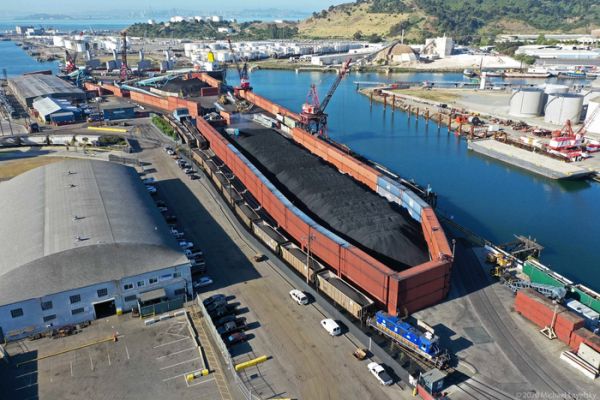Coal trains and terminal operations add a significant amount of fine particulate matter (PM2.5) pollution to urban areas, more so than other freight or passenger trains, according to a study conducted in Richmond, California, by the University of California, Davis.
Coal trains and terminal operations add a significant amount of fine particulate matter (PM2.5) pollution to urban areas, more so than other freight or passenger trains, according to a study conducted in Richmond, California, by the University of California, Davis.
The paper, published in the journal Air Quality, Atmosphere & Health, is the first study of coal train particulate pollution in a U.S. urban area. It’s also the first to use artificial intelligence technologies to verify that the source of air pollution detected comes from coal.
It found that passing trains carrying coal add on average 8 micrograms per cubic meter of air (ug/m3) to ambient PM2.5 pollution. That is 2 to 3 ug/m3 more than freight trains contribute. Even empty coal cars add about 2 ug/m3 to the air due to traces of coal dust. Under certain wind conditions, these concentrations reached 25 ug/m3.
Read more at: University of California - Davis
A shipment of coal awaits loading at the Levin-Richmond marine terminal shipyard in California. (Photo Credit: Michael Layefsky)




